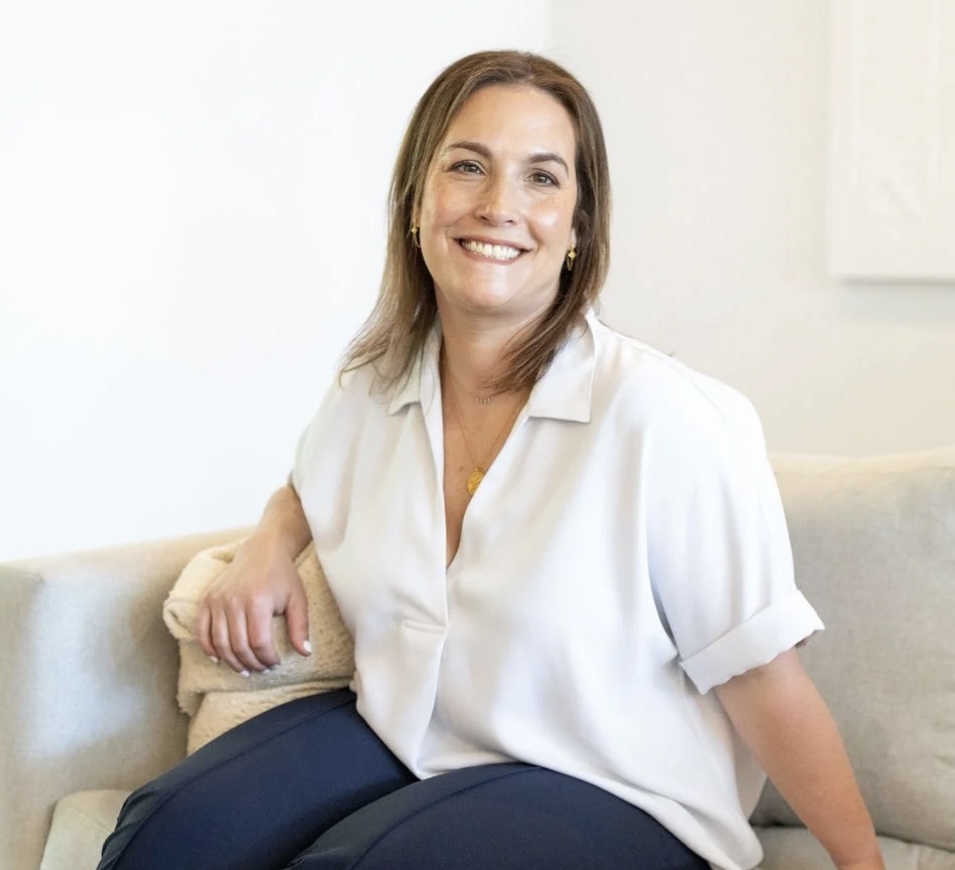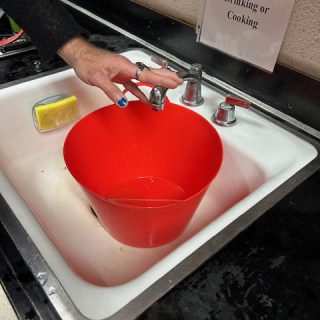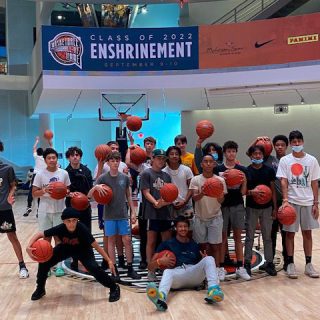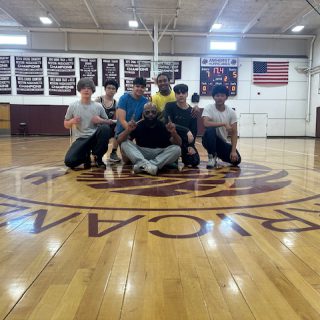Happy Valley nutritionist shares an inclusive, body-positive approach to wellness

Amanda Mittman (MS, RD, and LDN) is the founder of Happy Valley Nutrition, located at 25 Pray Street in Amherst, Massachusetts. Her business is dedicated to weight-inclusive nutrition care. If you visit her website, the words “OWN YOUR BODY AND FEEL GOOD DOING IT” leap off the page, followed by the quote, “Find peace with food and your body through our nutrition counseling services in Massachusetts & beyond.”
I spoke with Mittman about her life, her mission as a “health at every size” nutritionist, and the history behind her work.
Geisel: Where did you grow up?
Amanda: I grew up in Westchester County, NY– the suburbs of New York City.
Geisel: Describe your family.
Amanda: I have an older brother who lives in California and is a lawyer. My mom is an acupuncturist and mindset coach who lives in NYC, and my dad owns his own business (furniture manufacturing for hotels) and now lives in China!
Geisel: Where did you go to high school?
Amanda: Scarsdale High School– class of 1998!
Geisel: If you went, what college did you attend, and what did you study?
Amanda: I attended George Washington University in Washington, DC. I studied communication (like interpersonal and organizational) and minored in Spanish. To be honest I had NO idea what I wanted to do at the time. Also when I was in college 9/11 happened and it was really hard to find work when I graduated in 2002, so I ended up working with my father in his business for 10 years. I worked in customer service, then as a showroom manager and head of public relations. I really had to learn on the job for those roles.
Geisel: How were you introduced to nutrition? Has it always been a passion?
Amanda: I became interested in nutrition and health when I was working in New York City. In full transparency, I developed disordered eating behaviors which fueled my drive to learn all about nutrition and health. While working in my family’s business, I returned to NYU to complete my dietetic coursework. I wish I could say that I had a healthy relationship with food and my body when going through the program but it only fueled it even more. I carried a lot of shame for a long time that my eating disorder brought me to the field of nutrition. However it’s quite common (especially for those of us who work in the eating disorder field).
Geisel: What are your own experiences with people who have an unrealistic body image for themselves or others?
Amanda: I can draw upon my own experiences as a young person just wanting to fit in and be the best version of myself but taking it too far. I grew up without social media as a child of the 80s and 90s, and diet culture was really punishing. Thin was in and there was no room for anything else. I felt pressure to look a certain way, and then when I went back to school for nutrition, I thought I wanted to help others get “healthy,” and back then, healthy meant thin. Of course, now I know that is wildly incorrect. Weight does not equal health (and we have studies to prove that), and ALL bodies are worthy, but sadly I did not have any of those influences back then.
Geisel: What are your thoughts on diets, and what people think the “perfect body” is?
Amanda: Well, in short, diets do not work. They may work in the very short term, but we have zero studies showing us that weight can be kept off in the long term. I see firsthand (with my lived experience and from my clients) that dieting can be the gateway to disordered eating and eating disorders. We end up on a hamster wheel of the diet cycle— we don’t like our body, so we restrict our food in some way, it works for a hot minute, and then ultimately, it fails. At that point, we gain the weight back, we hate our body again, and around we go on the cycle. What I hate about dieting is that when it doesn’t work, people see it as a personal failure. Maybe they think “I don’t have enough willpower” or “I can’t believe I gained the weight back, what’s wrong with me… I’ll just try harder!” The truth is, biology always wins, and the diet was never meant to work. That’s why we have a multi-billion dollar diet industry. As for the perfect body (and as an extension, BMI), this is rooted in patriarchy, capitalism, ableism, and racism. I highly recommend the book “Fearing the Black Body,” by Sabrina Strings, to learn more about [the roots of anti-fat bias in our culture].
Geisel: What made you want to start up your own business? And when?
Amanda: As I was healing from my own disordered eating, I realized I wanted to help others do the same. I was learning all about Intuitive Eating and practicing the principles in my own life, and learning about the Health at Every Size movement, and it all just clicked. I was working at Community Action Pioneer Valley Head Start as the Health Manager. While I loved the work, the summer of 2019 saw me taking a leap of faith and starting my nutrition counseling business in June 2019. I didn’t know anyone else working from a weight-inclusive, or fat-positive approach so I figured there was a niche to fill.
Geisel: What were some setbacks and successes in starting your business?
Amanda: I had no clue what I was doing and had major imposter syndrome. What if I didn’t get any clients? What if I sucked as a dietitian? What if I couldn’t help my clients? These are thoughts that really swirled in my head. What did help is that I also started nutrition counseling at a doctor’s office, which brought in income to support the start of my business. I could slowly build Happy Valley Nutrition and not have to rely on my business for income in the beginning. That helped me sleep at night.
Geisel: How long did it take for you to start the Happy Valley nutrition business? Did you get help from anyone?
Amanda: I ran Happy Valley Nutrition part-time until COVID hit… and then the business really exploded. People were home, around food, and struggling. I was able to bring on another dietitian to see clients in the business– and the business has organically grown and we now have 8 dietitians on the team. And as for help, I have no problem asking others for support. In the very beginning, I found an accountant, a bookkeeper (because financial stuff is not my expertise), a clinical supervisor, and I joined business groups. I networked like crazy with providers in the community. Asking for help is really the best thing you can do when owning your own business.
Geisel: How long has Happy Valley Nutrition been open? Are there any other locations?
Amanda: We have been in business since 2019 and have expanded our team each year we have been open. We have the office located in Amherst but the rest of my team sees clients virtually from the Boston area, New Hampshire, and Connecticut.
Geisel: What made you choose the Amherst location for your business?
Amanda: I wanted to be in a community I really love. Amherst has two colleges and is a lovely walkable town. I wanted to have an office in a location where I could grab a coffee or tea easily, or go for a walk in between clients. And the 10 minute commute is pretty nice!
Geisel: What are your goals for Happy Valley Nutrition?
Amanda: I am so proud of what my team and I have created at Happy Valley Nutrition. We are the only group practice of dietitians specializing in eating disorders, disordered eating, and weight-inclusive nutrition care. I love that we provide an alternative to weight-centric care, a safe place for people of all ages, all sizes, to be valued, listened to, and cared for. As for goals, I plan to continue to grow the business, continue to speak and educate the community about eating disorders, and perhaps open another location. My dream has always been to have a weight-inclusive wellness center.
Geisel: Is there any additional information you would like people to know about Happy Valley Nutrition?
Amanda: I just want to say, if you or someone you know is struggling with disordered eating or body image issues, please know there are wonderful supports out there for you. Whether it’s websites, social media accounts, or a dietitian, we are here to help. It is very hard to grow up, live, and thrive in a weight-obsessed culture (as I know firsthand). Please know you’re not alone.
Geisel: Is there anything else you’d like to add?
Amanda: We have some great free resources on our Happy Valley Nutrition website.Not only do we love what we do here at HVN, we are insurance-based, so most people pay nothing for a visit with a dietitian! You can visit our website at www.happyvalleynutrition.com or reach out to me directly at amanda@happyvalleynutrition.com!














